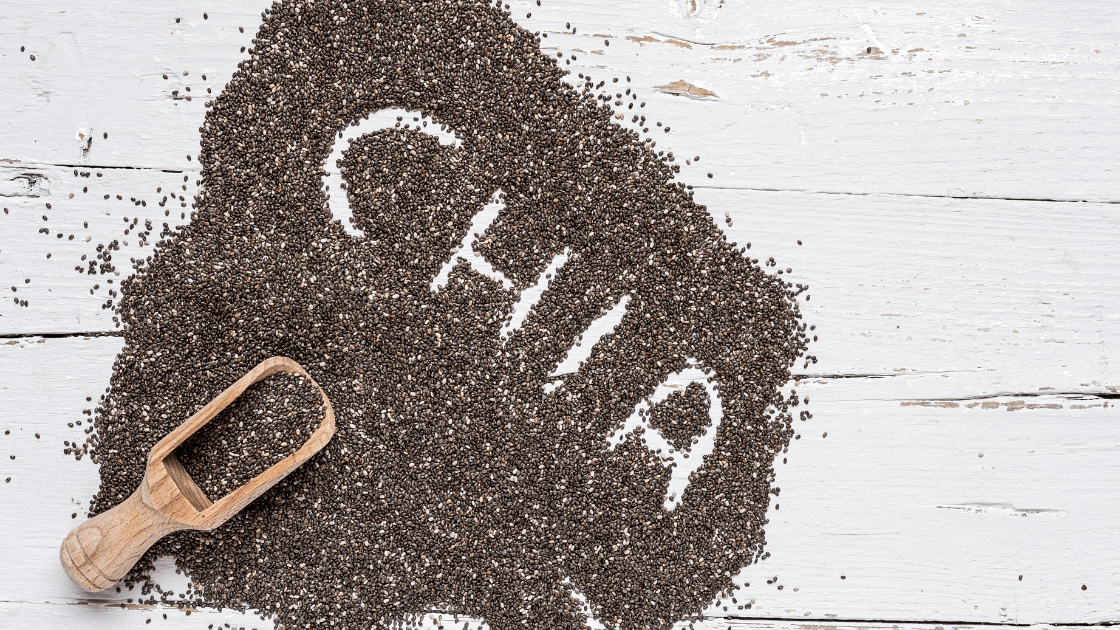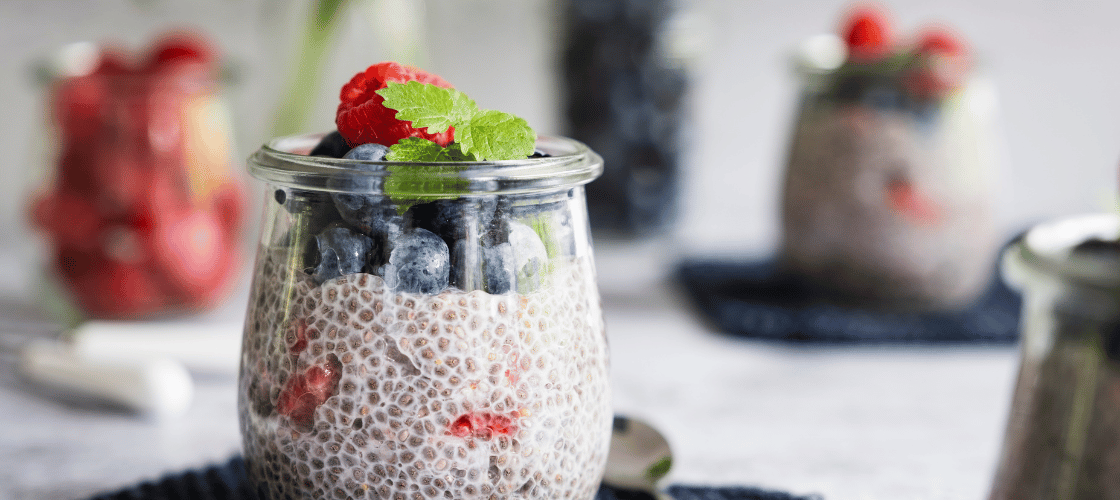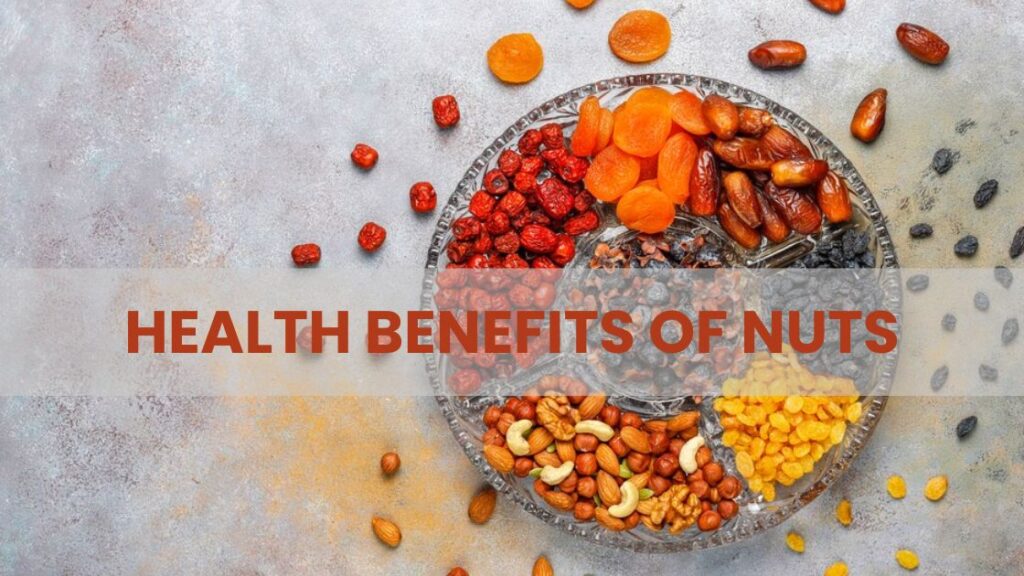Chia Seeds: Health Benefits, Sources, and Supplements

Introduction
Chia seeds have become incredibly popular as a superfood because of their impressive health benefits. These small seeds come from the Salvia hispanica plant and are packed with important nutrients that are good for your health. They are very versatile and can be used in many different ways, making them a great addition to any diet.
Here are some important things to know about chia seeds:
- They are high in fiber, antioxidants, minerals, and heart-healthy omega-3 fatty acids.
- Chia seeds offer a wide range of health benefits, including better bone health, a healthier heart, control over your blood sugar levels, help with managing your weight, and healthier skin.
- You can add chia seeds to lots of different dishes and recipes like smoothies, puddings, salads, and baked goods.
In the next sections, we will take a closer look at the specific health benefits of chia seeds, explore various ways to use them in your diet, talk about where to get them and how to store them properly, and discuss whether or not chia seed supplements are a good idea. By the time you finish reading this article, you will know everything there is to know about chia seeds and how they can make you healthier.
1. Health Benefits of Chia Seeds
Chia seeds are packed with essential nutrients and offer a multitude of health benefits, ranging from improved bone health to heart health and blood sugar control. Let’s explore the various ways chia seeds can contribute to your overall well-being.
Role of Chia Seeds in Bone Health
Chia seeds are an excellent source of essential minerals such as calcium, phosphorus, and magnesium, all of which are vital for maintaining strong and healthy bones. These minerals play a crucial role in supporting bone mineral density and overall bone health. Studies have shown that chia seed consumption is linked to improved bone mineral density, making them a valuable addition to your diet for maintaining skeletal strength.
Incorporating chia seeds into your meals can provide a natural and plant-based way to ensure you’re getting the essential nutrients necessary for bone health. The high calcium content in chia seeds is particularly beneficial for individuals who may not consume dairy or other calcium-rich foods regularly.
By including chia seeds in your diet, you can actively contribute to the long-term health and resilience of your bones. Whether added to smoothies, yogurt, or baked goods, chia seeds offer a versatile and convenient means of fortifying your dietary intake with bone-strengthening nutrients.
Remember: A diet rich in calcium and phosphorus is essential for maintaining strong bones, and chia seeds can be a valuable ally in achieving this goal.
Role of Chia Seeds in Heart Health
The next key health benefit of chia seeds is their positive impact on cardiovascular well-being.
Heart Health Benefits of Chia Seeds
Chia seeds are known for their potential to improve heart health because they are packed with important nutrients. Here’s what you need to know:
- Rich in Fiber, Antioxidants, and Essential Minerals: Chia seeds contain a good amount of fiber, antioxidants, and essential minerals like magnesium, potassium, and calcium. These nutrients work together to provide various health benefits.
- Positive Impact of Omega-3 Fatty Acids on Cardiovascular Health: Omega-3 fatty acids are beneficial for the heart as they help reduce the risk of heart disease. Chia seeds are one of the best plant-based sources of these healthy fats.
In addition to the nutrients mentioned above, chia seeds also have the ability to lower blood pressure and reduce inflammation, both of which are important for heart health.
Including chia seeds in your diet can be a smart move to support your overall cardiovascular well-being.
Blood Sugar Control and Chia Seeds
Chia seeds have gained popularity for their potential to positively impact blood sugar levels and insulin sensitivity, making them a valuable addition to a balanced diet for individuals concerned about their blood sugar control. The high nutritional value of chia seeds, rich in fiber, antioxidants, and essential minerals, plays a crucial role in their ability to affect blood sugar levels.

Effects of Chia Seeds on Blood Sugar Levels and Insulin Sensitivity
The impressive fiber content of chia seeds is a key factor in their ability to modulate blood sugar levels. When you consume chia seeds, the soluble fiber in them forms a gel-like substance in your stomach. This slows down the digestion and absorption of carbohydrates, resulting in a gradual release of glucose into your bloodstream. As a result, it prevents rapid spikes in blood sugar levels.
The soluble fiber in chia seeds forms a gel-like substance in the stomach, slowing down the digestion and absorption of carbohydrates.
Additionally, this fiber-rich property of chia seeds can contribute to increased feelings of fullness and reduced appetite. This can potentially aid in weight management and blood sugar control.
Relevant Study Findings on Chia Seeds and Glycemic Control
Research studies have provided evidence supporting the positive effects of chia seeds on glycemic control:
- A systematic review and meta-analysis published in the Journal of Nutritional Science concluded that consuming chia seeds may lead to significant reductions in post-meal blood glucose levels.
- Another study published in the British Journal of Nutrition found that chia seed consumption was associated with decreased levels of certain inflammatory markers and improved insulin sensitivity in individuals with type 2 diabetes.
The unique combination of nutrients found in chia seeds, including fiber, protein, healthy fats, and antioxidants, contributes to their potential health benefits related to blood sugar control. By incorporating chia seeds into your diet through various culinary applications, you can harness their nutritional properties to support your overall well-being.
Other Potential Benefits for Weight Loss and Skin Health
Chia seeds have gained popularity not only for their versatility in recipes but also for their potential benefits in weight management and skin health. Let’s delve into these claims and explore how chia seeds can contribute to your overall well-being.
Examining the Claims about Chia Seeds Aiding in Weight Management
1. Rich in Fiber
Chia seeds are an excellent source of dietary fiber, with a high content of soluble fiber, which can contribute to a feeling of fullness and aid in controlling appetite. The gel-like consistency formed when chia seeds are mixed with liquids can slow down the absorption of food, potentially reducing hunger and calorie intake.
2. Omega-3 Fatty Acids
The omega-3 fatty acids in chia seeds may play a role in regulating metabolism and reducing inflammation, which are factors that can influence weight management.
3. Protein Content
With a moderate amount of protein, chia seeds can be a valuable addition to a diet focused on weight loss or maintenance, as protein is known for its satiating effect.
The Role of Chia Seeds in Promoting Healthy Skin Function
1. Antioxidants
Chia seeds are rich in antioxidants, such as polyphenols, which help protect the skin from damage caused by free radicals. These compounds may contribute to maintaining healthy skin and preventing premature aging.
2. Essential Minerals
Chia seeds contain essential minerals like zinc, which is vital for maintaining collagen levels and promoting skin elasticity. Additionally, the high content of phosphorus in chia seeds supports overall skin health.
As we continue to explore the potential benefits of chia seeds, we’ll uncover more ways these tiny seeds can positively impact your health and well-being.
2. How to Incorporate Chia Seeds into Your Diet
Chia seeds are incredibly versatile and can be easily incorporated into your daily diet. Here are some delicious and creative ways to add chia seeds to your favorite foods:
Adding Chia Seeds to Smoothies and Yogurt
Smoothies and yogurt are excellent options for incorporating chia seeds into your diet. Not only do they provide a convenient and tasty base, but they also allow the chia seeds to absorb liquid and create a gel-like consistency.
To make a chia seed smoothie, simply blend your favorite fruits, vegetables, and liquids together. Then, add a tablespoon or two of chia seeds and let them sit for a few minutes to thicken. This will give your smoothie an added boost of fiber and omega-3 fatty acids.
Try these delicious chia seed smoothie recipes:
- Berry Blast Chia Smoothie:
- Ingredients: 1 cup mixed berries, 1 banana, 1 cup almond milk, 2 tablespoons chia seeds.
- Instructions: Blend all ingredients until smooth. Let it sit for 5 minutes to allow the chia seeds to thicken.
- Green Power Chia Smoothie:
- Ingredients: 1 cup spinach, 1/2 avocado, 1 cup coconut water, juice of 1/2 lemon, 2 tablespoons chia seeds.
- Instructions: Blend all ingredients until smooth. Allow the chia seeds to thicken for a few minutes before enjoying.
In addition to smoothies, you can also sprinkle chia seeds on top of yogurt for added texture and nutrition. Mix them in with your favorite flavored yogurt or create a parfait by layering yogurt, fresh fruits, granola, and chia seeds.
Making Chia Pudding and Parfaits
Chia pudding is a simple yet nutritious dessert option that can be enjoyed any time of the day. To make chia pudding, mix chia seeds with your choice of milk (such as almond milk or coconut milk) and let it sit in the refrigerator overnight. The chia seeds will absorb the liquid and create a creamy, pudding-like texture.
Here’s a basic chia pudding recipe to get you started:
- Ingredients: 1/4 cup chia seeds, 1 cup almond milk, 1 tablespoon honey or maple syrup (optional), fresh fruits for topping.
- Instructions: In a jar or bowl, mix together chia seeds, almond milk, and sweetener if desired. Stir well to ensure the chia seeds are evenly distributed. Place in the refrigerator overnight or for at least 4 hours. Serve chilled with your favorite fruits on top.
Chia pudding can be customized with various flavors and toppings. You can add cocoa powder for a chocolatey twist, vanilla extract for a classic flavor, or even matcha powder for a vibrant green hue. Top it off with fresh fruits, nuts, and granola for added crunch and nutrition.
Using Chia Seeds in Salads and Baked Goods
Chia seeds can add a crunchy twist to your salads by sprinkling them on top as a garnish. They can also be used as an egg replacement in baked goods for those who follow a vegan or plant-based diet.
To use chia seeds as an egg substitute, mix 1 tablespoon of chia seeds with 3 tablespoons of water and let it sit for a few minutes until it forms a gel-like consistency. This mixture can then be used in place of one egg in recipes such as muffins, pancakes, or cookies.
Here’s an example of using chia seeds in baking:
- Chia Seed Banana Bread: Ingredients: 2 ripe bananas, mashed; 1/4 cup coconut oil; 1/4 cup honey or maple syrup; 1 teaspoon vanilla extract; 1 3/4 cups flour; 1 teaspoon baking soda; 1/2 teaspoon salt; 2 tablespoons chia seeds mixed with 6 tablespoons water (chia gel).
- Instructions: Preheat the oven to 350°F (175°C). In a large bowl, mix together mashed bananas, coconut oil, honey or maple syrup, and vanilla extract. In a separate bowl, whisk together flour, baking soda, and salt. Add the dry ingredients to the wet ingredients and mix until just combined. Fold in the chia gel. Pour the batter into a greased loaf pan and bake for about 45 minutes or until a toothpick inserted into the center comes out clean.
By incorporating chia seeds into your diet through smoothies, puddings, salads, and baked goods, you can enjoy their numerous health benefits while adding a delicious and nutritious twist to your meals.
Making Chia Pudding and Parfaits
Chia seeds are incredibly versatile and can be used to create delicious and nutritious desserts, with chia pudding being a popular choice for health-conscious individuals. Here, we’ll explore how to make irresistible chia seed puddings and incorporate chia seeds into parfaits for a delightful treat.

How to Make Irresistible Chia Seed Puddings for a Nutritious Dessert Option
- Basic Chia Pudding Recipe: To make a simple chia pudding, mix 1/4 cup of chia seeds with 1 cup of your preferred milk (almond, coconut, or dairy milk) in a jar or bowl. Add a sweetener such as honey or maple syrup to taste, along with a splash of vanilla extract. Stir the mixture well and let it sit in the refrigerator for at least 4 hours, or preferably overnight. The chia seeds will absorb the liquid and create a creamy, pudding-like texture.
- Variations: Get creative with your chia pudding by adding flavors such as cocoa powder, matcha powder, or pureed fruits like strawberries or mangoes. Layer the pudding with fresh fruit, granola, or nuts for added texture and flavor.
- Health Benefits: Chia pudding is not only delicious but also packed with nutrients such as fiber, protein, healthy fats, and essential minerals. It makes for a satisfying dessert option without compromising on health.
Practical Tips for Enjoying Chia Seeds in Various Ways
- Parfaits: Use chia pudding as a base for creating colorful and nutritious parfaits. Layer the chia pudding with Greek yogurt, fresh berries, and a sprinkle of crunchy granola for an indulgent yet healthy parfait.
- Meal Prep: Prepare multiple servings of chia pudding in advance and store them in individual jars or containers for quick and convenient grab-and-go snacks or breakfast options. Experiment with different toppings and flavors to keep things interesting.
By incorporating chia seeds into these delightful dessert options, you can elevate your culinary experience while reaping the health benefits of this superfood. Whether enjoyed as a guilt-free dessert or a wholesome breakfast treat, chia pudding and parfaits offer endless possibilities for satisfying your sweet cravings in a nourishing way.
Using Chia Seeds in Salads and Baked Goods
Chia seeds are not only a great addition to smoothies and yogurt, but they can also be incorporated into salads and baked goods to add a nutritious twist. Here are some practical tips for enjoying chia seeds in various ways:
Adding a Crunchy Twist to Salads with Chia Seeds
- Sprinkle chia seeds on top of your favorite salad for an added crunch and texture. They can replace croutons or nuts as a healthier alternative.
- You can also mix chia seeds with your salad dressing to create a thicker, more flavorful dressing. Simply whisk together the chia seeds, olive oil, vinegar, lemon juice, and your choice of herbs and spices.
- Another option is to create a chia seed vinaigrette by blending soaked chia seeds with olive oil, balsamic vinegar, Dijon mustard, honey, and salt.
Healthier Approaches to Baking with Chia Seeds as an Egg Replacement
- Chia seeds can be used as an egg substitute in baking recipes for those who follow a vegan or egg-free diet. To replace one egg, mix one tablespoon of ground chia seeds with three tablespoons of water. Let the mixture sit for 5-10 minutes until it forms a gel-like consistency.
- This chia seed gel can be used as a binding agent in recipes like cookies, muffins, bread, and pancakes. It helps hold the ingredients together and adds moisture to the final product.
- When using chia seeds as an egg replacement, it’s important to note that the texture of the baked goods may be slightly different compared to using eggs. The result may be denser or chewier, but still delicious and nutritious.
By incorporating chia seeds into your salads and baked goods, you can enhance the nutritional value of these dishes while enjoying their unique texture and flavor. Whether you’re looking to add a crunchy element to your salads or replace eggs in your favorite baked goods, chia seeds offer a versatile and healthy option.
Remember to experiment with different recipes and find what works best for you. Chia seeds can be a fun and nutritious addition to your culinary creations, so get creative and enjoy the benefits they have to offer!
3. Finding Quality Chia Seeds: Sources and Storage Tips
Chia seeds are derived from the Salvia hispanica plant, which is native to Central and South America. These tiny seeds come in different varieties, including black, brown, and white chia seeds. When it comes to finding quality chia seeds, it’s important to consider their source and storage methods. Here are some key points to keep in mind:
Source of Chia Seeds
Look for reputable brands or suppliers that offer organic and non-GMO chia seeds. Organic chia seeds are grown without the use of synthetic pesticides or fertilizers, making them a healthier choice. Non-GMO seeds ensure that they haven’t been genetically modified.
Varieties of Chia Seeds
Black, brown, and white chia seeds all offer similar nutritional benefits. The choice of variety is mostly personal preference, as there isn’t a significant difference in taste or texture. However, some people find that black chia seeds have a slightly stronger flavor compared to the other varieties.
Packaging and Storage
To maintain the quality and freshness of chia seeds, it’s essential to store them properly. Ensure that the packaging is airtight and moisture-resistant to prevent spoilage. Store your chia seeds in a cool, dry place away from direct sunlight. It’s recommended to transfer them into an airtight container if the original packaging isn’t resealable.
Expiration Date
Check the expiration date on the package before purchasing chia seeds. Ideally, choose seeds with a longer shelf life to ensure they stay fresh for a longer period.
Quality Control
Some brands undergo third-party testing or have quality control measures in place to ensure their products meet specific standards. Look for brands that prioritize quality control to ensure you’re getting the best possible product.
By considering these factors when sourcing and storing your chia seeds, you can ensure that you’re getting high-quality seeds that retain their nutritional value and freshness. Incorporating these nutritious seeds into your diet will be even more rewarding when you know you’re using the best possible product.
4. Should You Consider Chia Seed Supplements?
Chia seeds are not only popular as a food ingredient but also available in supplement form. Chia seed supplements, specifically milled chia seeds, offer a convenient way to incorporate the health benefits of chia seeds into your diet. Here are some key points to consider when deciding whether chia seed supplements are right for you:
Milled Chia Seeds as Supplements
Milled chia seeds are essentially ground chia seeds that have been processed into a powdered form. This allows for easier digestion and absorption of the nutrients present in the seeds. Here are some advantages of using milled chia seed supplements:
- Enhanced nutrient absorption: The milling process breaks down the tough outer shell of the chia seeds, making it easier for your body to extract the nutrients. This means that you can benefit from the nutritional profile of chia seeds more effectively.
- Convenience: Chia seed supplements provide a convenient option for individuals who may find it difficult to regularly include whole chia seeds in their diet. They can be easily added to smoothies, yogurt, or baked goods without altering the taste or texture significantly.
- Extended shelf life: Milled chia seed supplements have a longer shelf life compared to whole chia seeds since they are more resistant to spoilage. This makes them a practical option for those who want to have a constant supply of chia seeds without worrying about them going bad.
Choosing and Using Chia Seed Supplements Safely
When considering chia seed supplements, it is important to choose high-quality products and use them correctly to maximize their benefits:
- Selecting high-quality supplements: Look for reputable brands that prioritize quality control and source their chia seeds from reliable suppliers. Checking for third-party certifications on the product packaging can also ensure that you are getting a reliable and safe supplement.
- Proper dosage and usage: Follow the instructions provided by the supplement manufacturer for the recommended dosage and usage. It is important not to exceed the recommended intake, as excessive consumption of chia seed supplements may have adverse effects.
- Consulting with a healthcare professional: If you have any underlying health conditions or are taking medications, it is always a good idea to consult with your healthcare professional before incorporating chia seed supplements into your routine. They can provide personalized advice based on your specific needs and circumstances.
Remember that while chia seed supplements can be a convenient way to enjoy the health benefits of chia seeds, they should not replace a balanced diet. It is still important to incorporate whole foods into your meals and snacks for a well-rounded nutritional intake.
Choosing and Using Chia Seed Supplements Safely
When it comes to incorporating chia seeds into your diet, you have the option of consuming them in their whole seed form or as supplements. Chia seed supplements can be a convenient way to ensure you’re getting the nutritional benefits of chia seeds, especially if you find it difficult to incorporate them into your meals on a regular basis.
Tips for Selecting High-Quality Chia Seed Supplements:
- Look for reputable brands: Choose chia seed supplements from well-known and reputable brands. This ensures that you are getting a product that has been tested for quality and safety.
- Check the ingredient list: Read the ingredient list carefully to make sure that the supplement contains only chia seeds and no added fillers or artificial ingredients. Look for products that are labeled as “100% pure” or “organic”.
- Consider the source: Check where the chia seeds used in the supplement are sourced from. Ideally, they should come from a trusted and reliable source known for producing high-quality chia seeds.
- Check for certifications: Look for certifications such as USDA Organic or Non-GMO Project Verified on the packaging. These certifications indicate that the product meets certain standards of quality and purity.
- Read customer reviews: Take the time to read customer reviews and feedback about the chia seed supplement you are considering. This can give you insights into other people’s experiences with the product and help you make an informed decision.
Proper Dosage and Usage Instructions for Maximum Benefit:
- Follow recommended dosage: Follow the recommended dosage instructions provided by the manufacturer. Chia seed supplements typically come in capsule or powder form, and the dosage may vary depending on the concentration of chia seeds in each serving.
- Consider your individual needs: Consider your individual nutritional needs and consult with a healthcare professional to determine the appropriate dosage for you. Factors such as age, sex, weight, and any underlying health conditions can influence the recommended dosage.
- Take with water: When taking chia seed supplements in capsule form, make sure to drink an adequate amount of water to ensure proper digestion and absorption. Chia seeds absorb liquid and can expand in your stomach, so staying hydrated is important.
- Combine with a balanced diet: Chia seed supplements should be used as part of a balanced diet and not as a substitute for whole foods. They can complement your overall nutrition intake but should not be relied upon as the sole source of essential nutrients.
Remember, while chia seed supplements can be beneficial, it’s always best to obtain nutrients from whole foods whenever possible. Supplements should be used to supplement a healthy diet, not replace it. If you have any concerns or questions about incorporating chia seed supplements into your routine, it’s always a good idea to consult with a healthcare professional for personalized advice.
Potential Risks and Considerations
When it comes to incorporating chia seeds into your diet, it’s important to be aware of potential risks and considerations. While chia seeds offer numerous health benefits, there are a few things to keep in mind:
1. Possible Adverse Effects of Excessive Chia Seed Consumption
While chia seeds are generally safe for consumption, excessive intake may lead to certain adverse effects. Some individuals may experience digestive issues such as constipation, diarrhea, or bloating. This is mainly due to the high fiber content of chia seeds. To avoid these problems, it’s recommended to start with smaller amounts and gradually increase your intake while staying hydrated.
2. Precautions for Individuals Taking Blood-Thinning Medications
Chia seeds contain omega-3 fatty acids, which have blood-thinning properties. If you are taking blood-thinning medications like warfarin or aspirin, it’s crucial to consult with your healthcare provider before adding chia seeds to your diet. They can advise you on the appropriate dosage and potential interactions with your medication.
It’s always advisable to listen to your body and make adjustments accordingly. If you experience any negative reactions or discomfort after consuming chia seeds, it’s best to reduce or eliminate their consumption and seek medical advice if necessary.
Remember that moderation is key when incorporating any new food into your diet. By being mindful of these potential risks and considerations, you can safely enjoy the health benefits of chia seeds while minimizing any potential drawbacks.
Conclusion
Chia seeds are truly a powerhouse of nutrients and health benefits, offering a wide range of advantages for your overall well-being. As you consider incorporating chia seeds into your diet, it’s essential to embrace their versatility and explore the numerous ways they can contribute to a balanced and nutritious eating plan.
Here’s a summary of the key points to keep in mind as you conclude your exploration of chia seeds:
- Diverse Usage: Chia seeds can be seamlessly integrated into various dishes, from smoothies and yogurt to salads and baked goods, enhancing both the nutritional content and texture of your meals.
- Nutrient-Packed: With their high fiber, protein, antioxidants, and omega-3 fatty acids content, chia seeds offer a substantial nutritional boost that supports your overall health.
- Balanced Diet: By including chia seeds in your daily diet, you can contribute to better bone health, heart health, blood sugar control, weight management, and skin health.
Incorporating chia seeds into your diet is an exciting opportunity to elevate your nutrition and well-being. Their adaptability makes them an excellent addition to any meal, providing a convenient way to enhance the nutrient profile of your food choices. Embrace the potential of chia seeds as part of your holistic approach to wellness.








